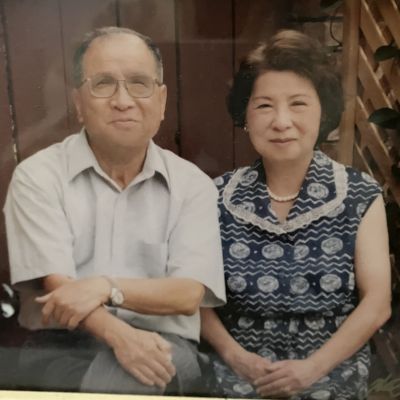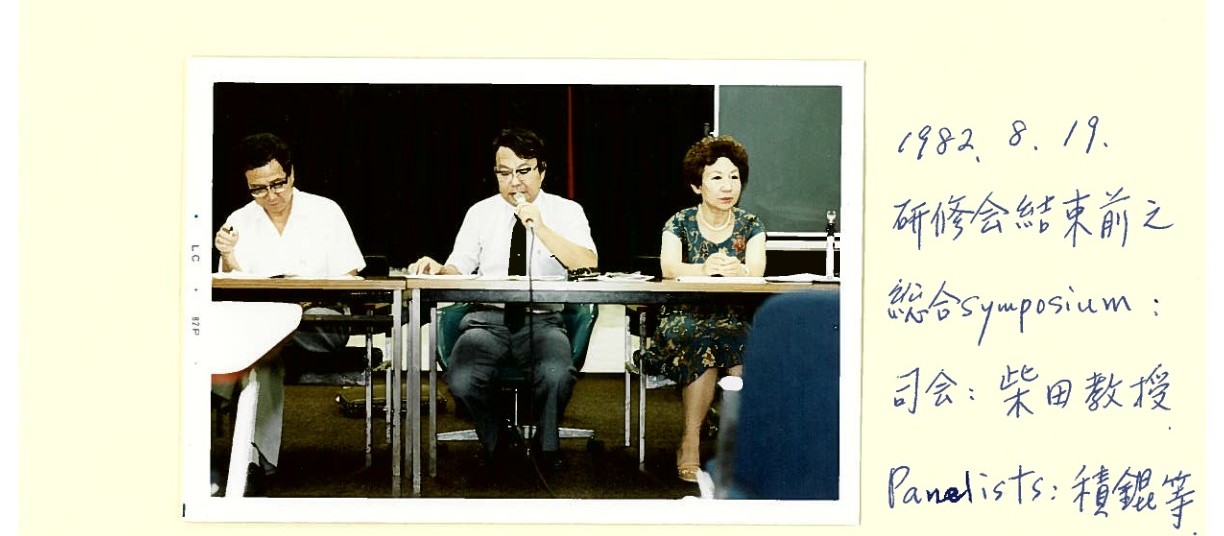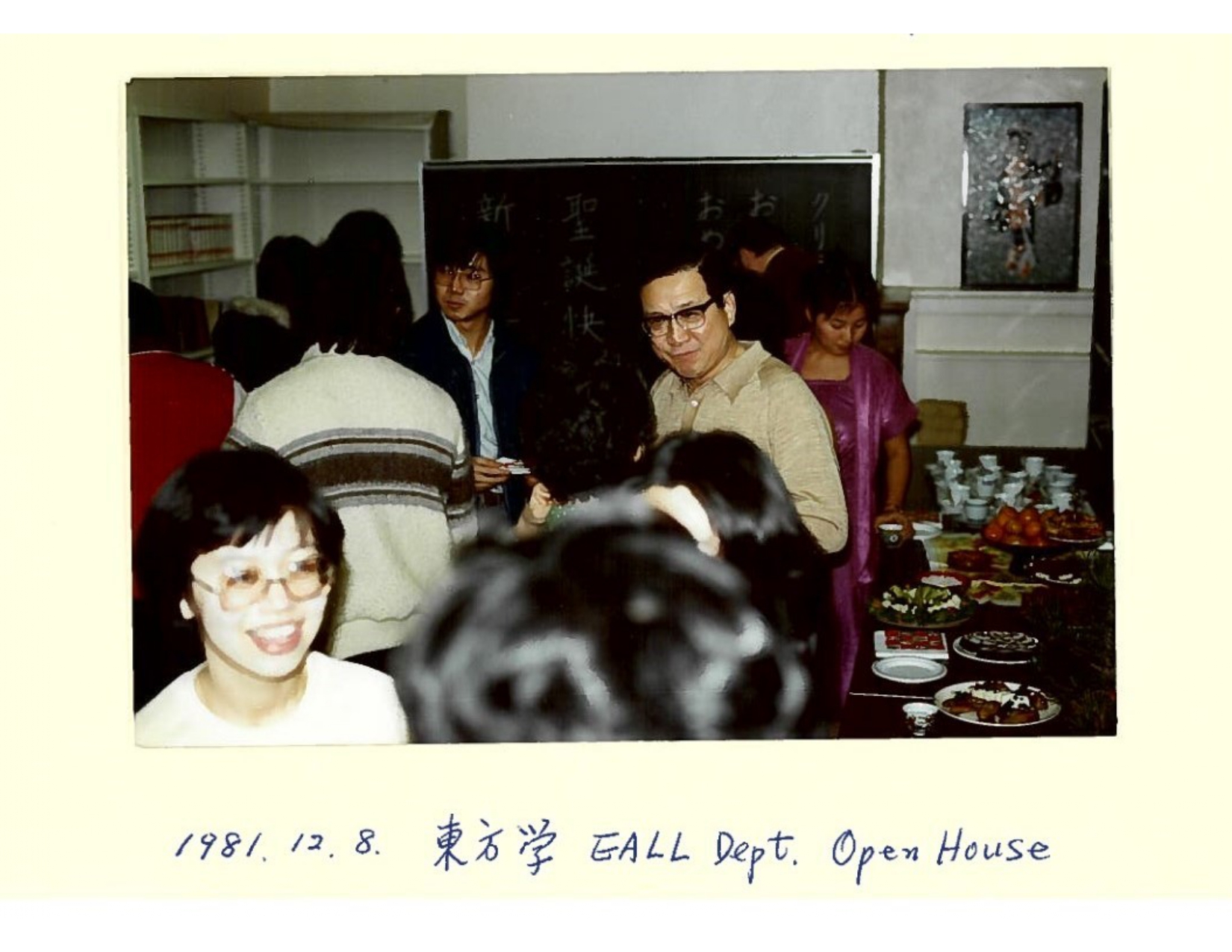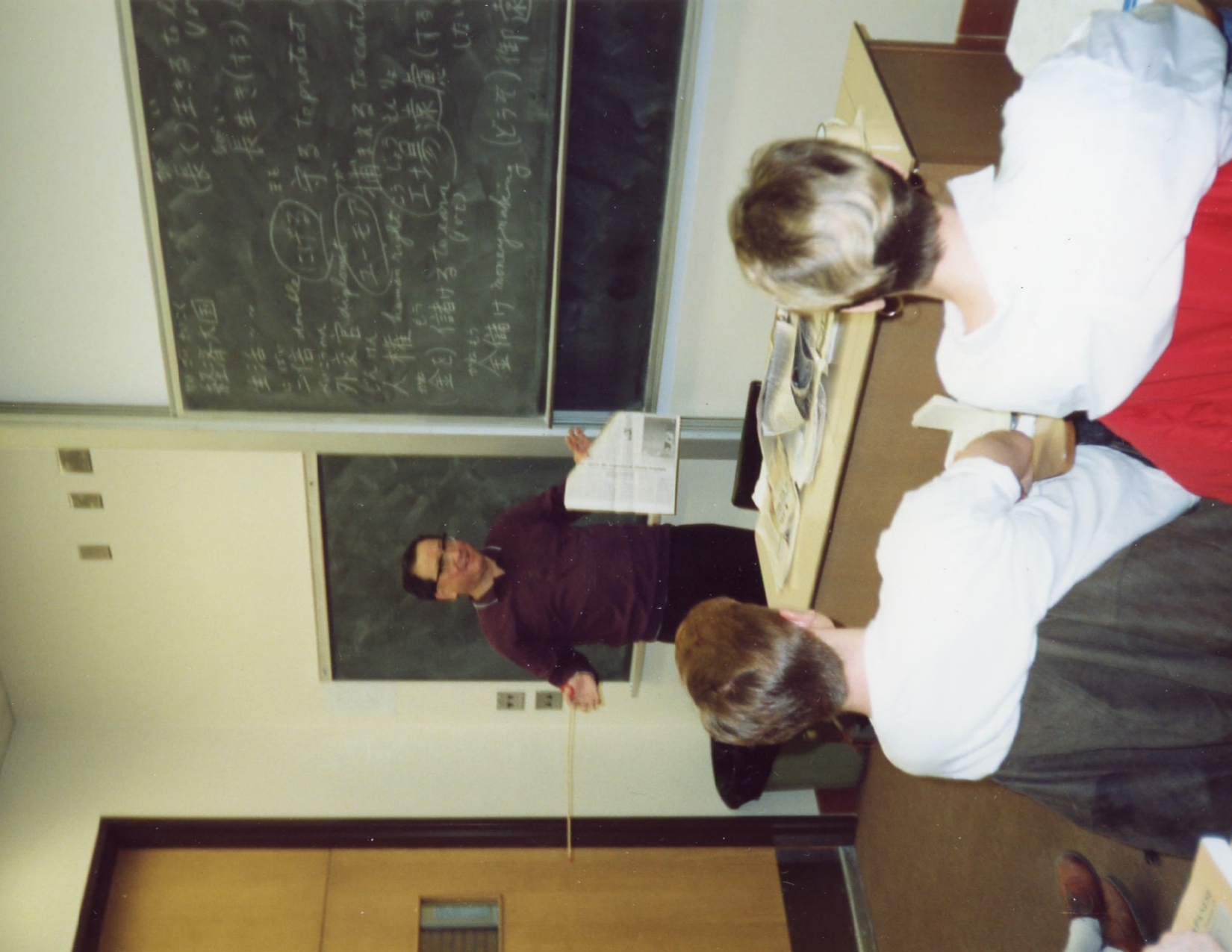Remembering Chi-Kun and Fu-Mei Kao

Chi-Kun Kao was born on March 04, 1928, Year of the Dragon, in Da-Jia (大甲), a small town in central Taiwan. His father (our grandfather) migrated in 1895 from Quanzhou (泉州), Fujian, China and through hard work, became a landowner and established a successful rice production business named “永泉興” (pronounced “eisenco” in Japanese). Chi-Kun’s family endowed a scholarship within U of A’s Computing Science Department in early 2000 to honor this foundational root of Kao’s family.
Chi-Kun’s father passed away when he was merely 5 years old. However, this loss did not affect his devotion to excel academically. He demonstrated his intelligence and eagerness in learning at a young age and excelled during elementary school. His Japanese teacher strongly urged his mother (our grandmother) and elder brothers to let him leave the comfort of home and travel to Taipei in northern Taiwan to attend the prestigious Taipei Academic High School (台北高等學校). This school was funded by the Governor of the Japanese Colonial Government in Taiwan for talented Japanese students. Each year, the school only admitted one class of 40 grade 7 students and of those, only 4 were set aside for native Taiwanese students. Through the toughest competition, Chi-kun was admitted at the age of 12. It was the first for a native Taiwanese from a small town in Taiwan.
It was during 6 years’ immersion at this school, that Chi-Kun developed a solid foundation in Japanese language, western style of thinking and culture, and aspirations for modern concepts, science and technologies, while at the same time, embracing Japanese traditions of discipline and honor.
He had to abandon his dream of going to the Imperial University of Tokyo when he graduated from Taipei Academic High as it was the tail end of WWII, and Taiwan was returned to the Republic of China after Japan’s loss in the War. Instead, Chi-Kun graduated with a bachelor’s degree in chemical engineering from National Taiwan University in 1949.

His talents, education, and venturesome, curious mind were reflected in his careers - a senior high school teacher, a pioneer in agriculture aviation, a pioneer in Taiwan in the research and manufacturing of specialty paper for use in Chinese calligraphy and painting, a manufacturer of saccharin, manager in coal mining, developer and manufacturer of resin and forms, etc.

Fu-Mei (Liu) Kao was born on July 28, 1929, Year of the Snake, in Kyoto, Japan, while her father (our maternal grandfather) was studying law at the Imperial University of Kyoto. Her father was from Wai-Pu (外浦), a small village outside Da-Jia, while her mother was from Da-Tuen (大屯), a village in Taichung County.
After returning to Taiwan, her father served in Japan’s colonial government in Taiwan, progressively moving up the ranks and roles: Customs Officer in the port of Kaohsiung (高雄) in southern Taiwan, Reeve for Dong-Gang(東港)City, a port city in eastern Taiwan, Reeve for Hsinchu County, Reeve for Hai-San (海山) County, a city just outside Taipei. He was Deputy Major of Taipei at the end of WWII.
Because of this family background, Fu-Mei was fully immersed in Japanese-speaking environments from her birth through her years of youth. In fact, she did not learn her native Taiwanese language and mandarin till Taiwan was returned back to the Republic of China. Her schooling was entirely in schools designated for Japanese students in Taiwan, with a small quota for native Taiwanese. Therefore, she was fully immersed in Japanese culture and social environments. She was very intelligent and excelled academically and well trained in classical Japanese characters, pronunciation, writing as well as traditional Japanese arts including flower arrangement. She was destined to go to the Tokyo University for Girls, if not for the end of WWII.
Although she was well groomed in Japanese culture, traditions and arts, she also fully embraced western thinking, culture and literature. It was this best of East meeting West that she brought to bear in bringing up her children.
Fu-Mei and Chi-Kun married in 1948 and raised four children together. In line with the tradition of that era, Fu-Mei stayed home to raise and care for her children. She was a house-maker all her life, other than the time she spent assisting Chi-Kun while he was with University of Alberta’s East Asian Studies.
The first and foremost priority of Fu-Mei and Chi-Kun was the education of their children. Fu-Mei accompanied her children to school while they were in Grades 1 and 2 and helped them take notes. She taught her children Chinese characters, singing, writing, calligraphy, arts and crafts, etc. Chi-Kun tutored his children mathematics till they were in Grade 9.
Throughout their children’s schooling, Fu-Mei and Chi-Kun engrained in their children’s minds their belief in “good parenting, education and academic excellence” and their belief in “study hard, work hard, mental toughness, discipline and honor”.
They encouraged their children to pursue graduate studies by going abroad to North America at the expense of not having their children nearby accompanying them. It was, in a way, helping them realize their own dreams of the past to pursue education abroad, which had been thwarted due to the ending of WWII.
Fu-Mei and Chi-Kun visited their sons in Canada and the US in 1976, their first time setting foot in North America. They immediately fell in love with Canada: the big blue sky and fresh clean air in Alberta, the scenery of Jasper and Banff National Parks, the majestic Rocky Mountains and Icefields, and more importantly, the friendliness of the people they met along the way, from Immigration Officers at YVR, flight attendants enroute from Vancouver to Edmonton and from Edmonton to Toronto, people they met in Edmonton, Toronto, Niagara Falls, etc.
Upon returning to Taiwan, they decided that they would uproot from where they grew up and part ways with their home and businesses to immigrate to Canada. Their immigration application was approved in the fall of 1977 and they landed in Canada on November 7, 1977.
Chi-Kun and Fu-Mei celebrated their 50th birthdays in Edmonton.
Dr. Jenn-Shann (Jack) Lin introduced Chi-Kun to Dr. Hazel Jones, then Professor of History and Chair of East Asian Studies Committee. Dr. Jones was immediately impressed with Chi-Kun as a native speaker of Japanese and Taiwanese, a near-native speaker of Mandarin Chinese, and was also quite amazed by his English skills. Dr. Jones believed he would be a good addition to the Japanese teaching team and recommended Chi-Kun highly to Professor Ohta and Miyamoto Sensei and initiated the appointment. In fact, initially it was Department of History that paid for Chi-Kun’s salary.
During Chi-Kun’s years at EAS, Fu-Mei often assisted him in mentoring and tutoring students in Japanese writing, pronunciation, and speaking by applying her background, training and understanding of Japanese language and literature.

Many years after Chi-Kun’s retirement, he would still often tell his children that teaching at East Asian Studies was the best job and career he had ever had and that the years he spent at EAS were the best time in his life, as he really enjoyed educating students in what he cherished: Japanese language, culture and traditions. Not to mention that he finally had an opportunity again to work with his wife, Fu-Mei, as a team in teaching and mentoring, even though it was no longer for their own children.
A Tribute to our Parents – Fu-Mei and Chi-Kun Kao